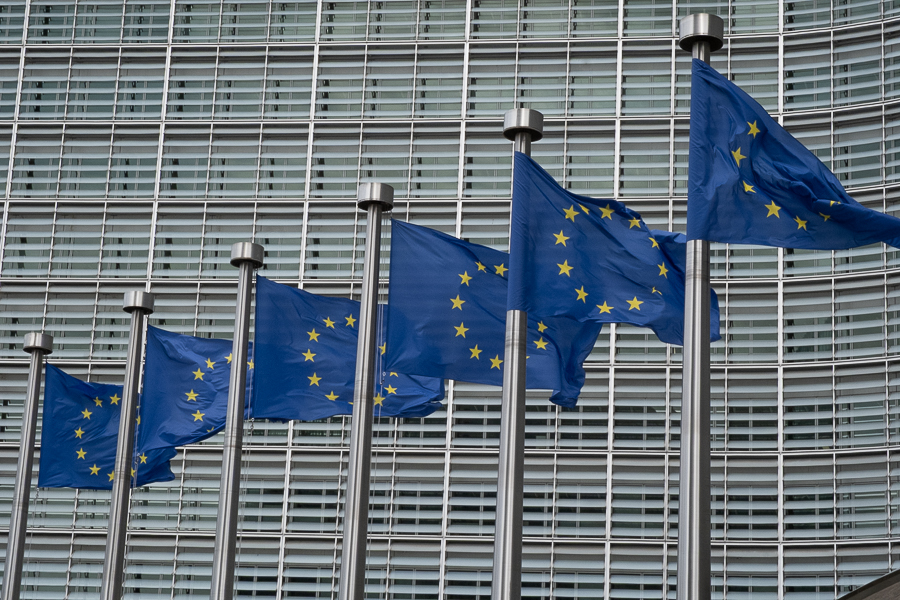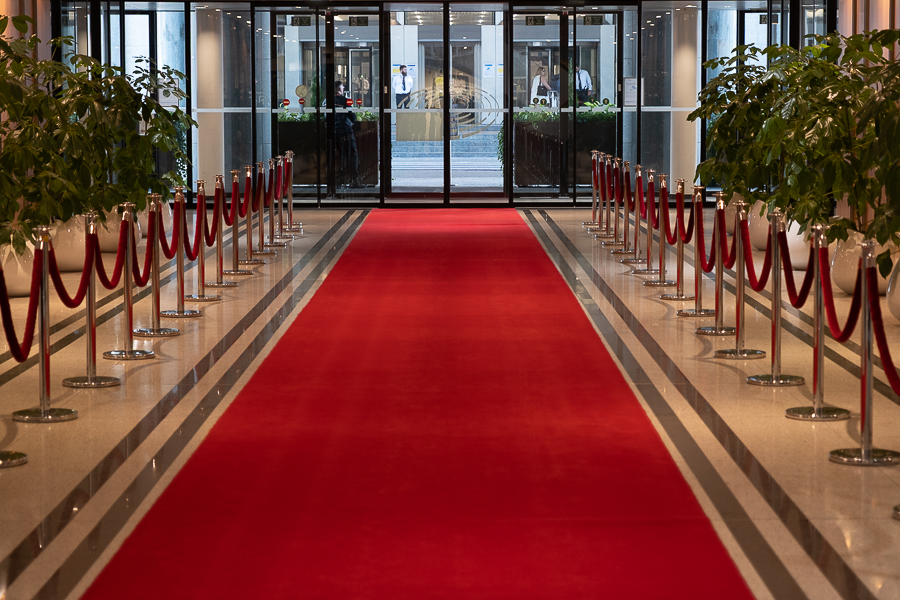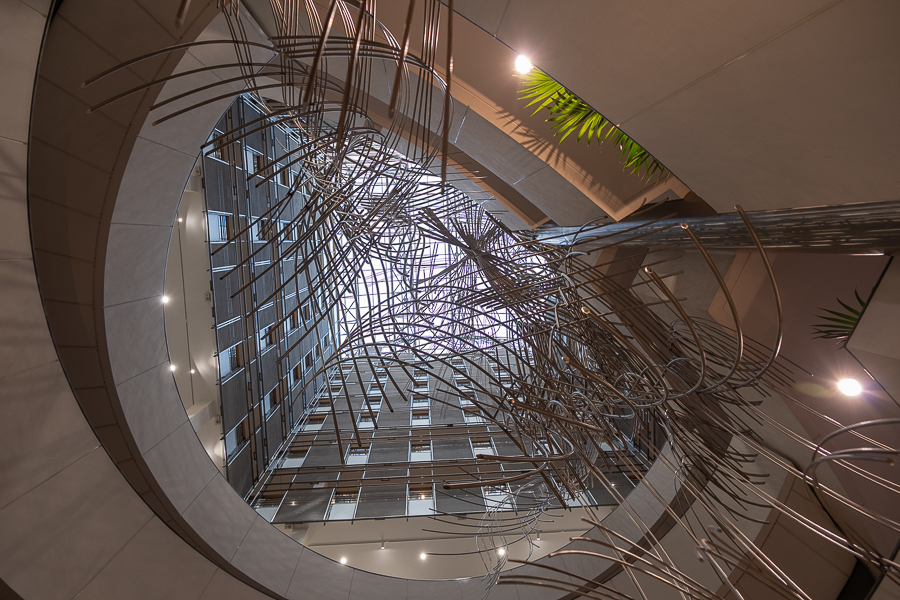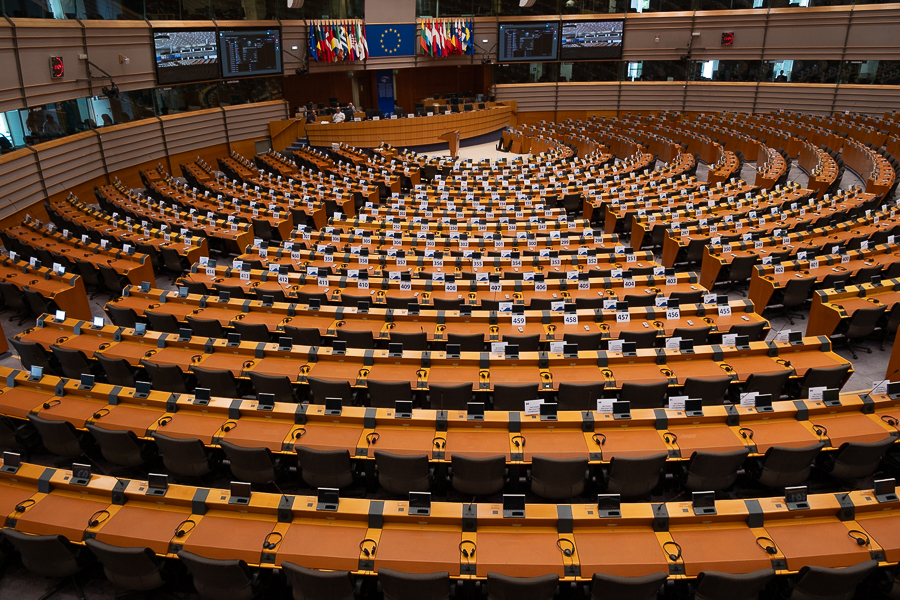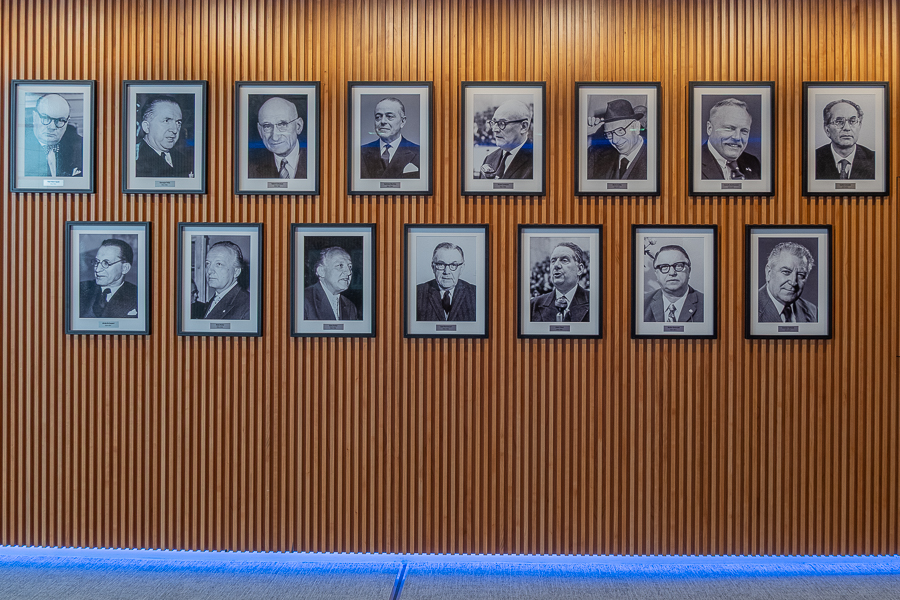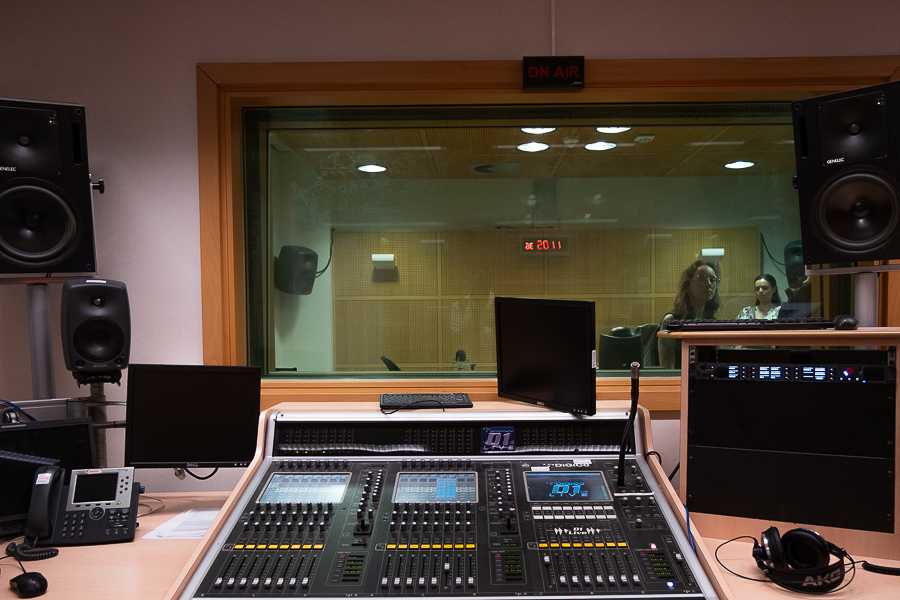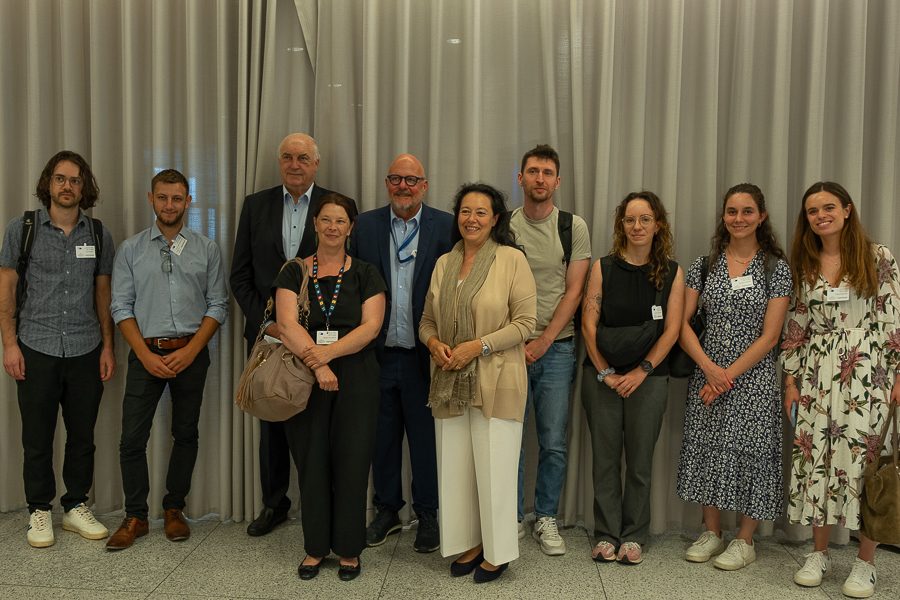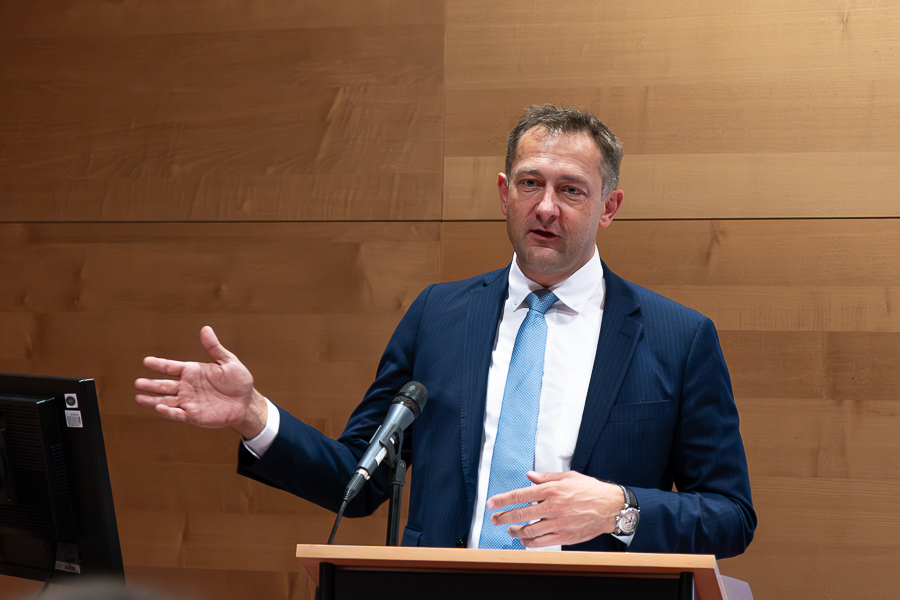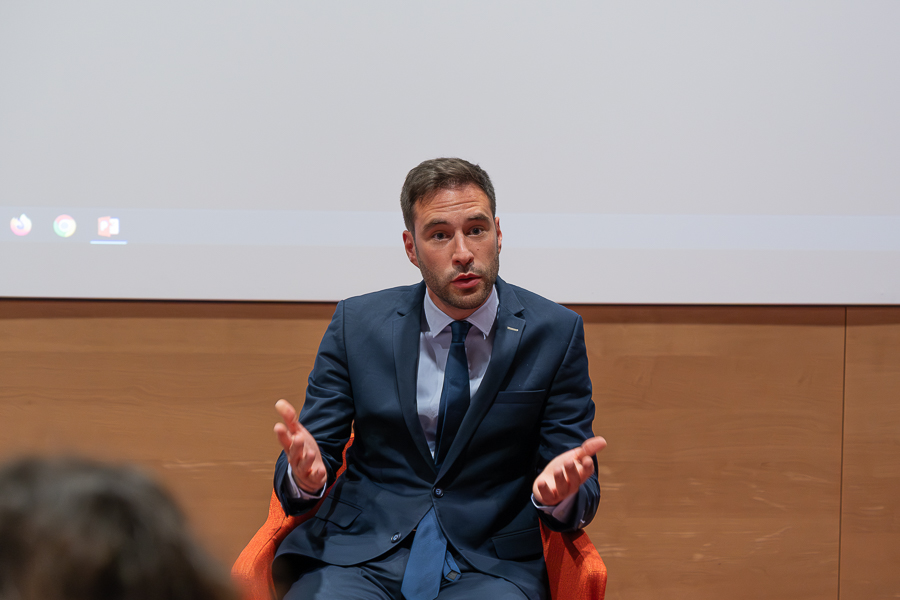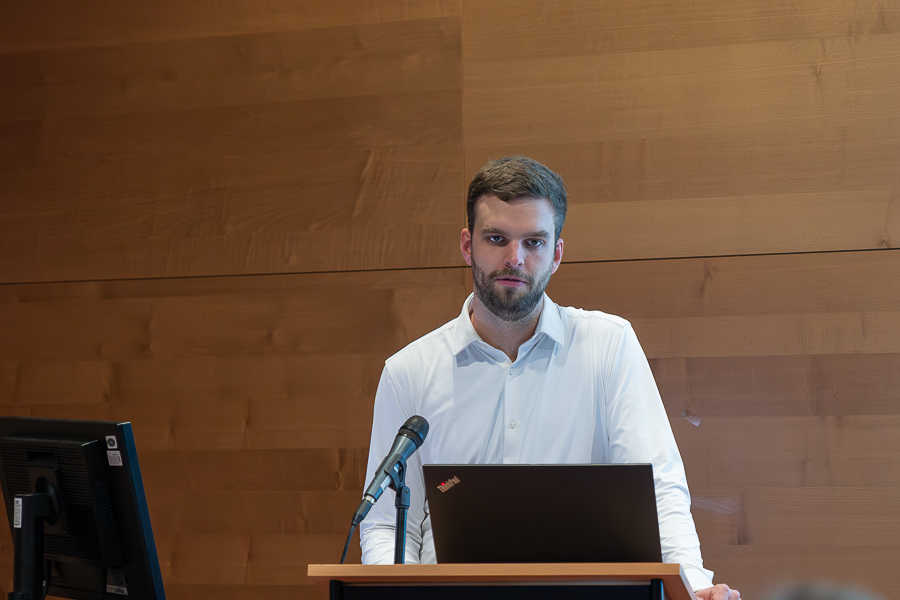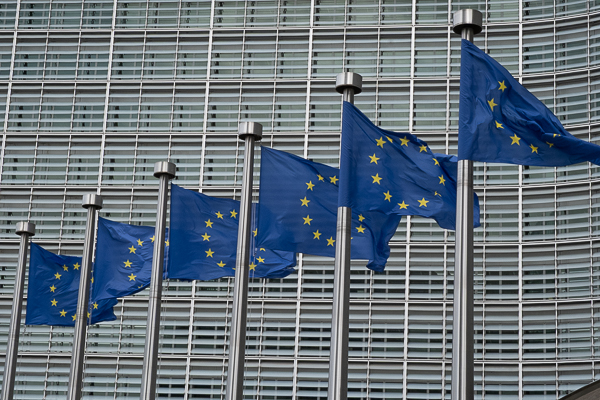 EU flags in front of the Berlaymont building, headquarters of the European Commission;
Credit: Ali Sahib, Chronicle.lu
EU flags in front of the Berlaymont building, headquarters of the European Commission;
Credit: Ali Sahib, Chronicle.lu
On Wednesday 2 July 2025, Chronicle.lu joined a delegation of Luxembourg-based journalists on a visit to the European Union Institutions in Brussels, Belgium.
The visit, organised by the European Commission Representation in Luxembourg in collaboration with the European Parliament Liaison Office in Luxembourg, offered media representatives an opportunity to gain deeper insights into the European Union’s policies and priorities, engage with EU experts and explore key venues of European governance.
The media programme began with representatives of the European Parliament's Media Services Unit (MSU) presenting a range of digital tools and resources available to journalists. Eva Egido Cano, Press Officer, outlined support services such as press conferences, media seminars, fact-checking initiatives, access to audiovisual material and tailored training opportunities for young journalists. Among the key resources highlighted were the Parliament’s Multimedia Centre for live streaming and downloadable audiovisual material; the “What Europe Does for Me” portal, offering insights into EU-funded projects by region; and the European Parliament Research Service (EPRS), which provides in-depth briefings, infographics and legislative analysis to support journalistic coverage.
Cecilia Sundberg, representing the Directorate-General for Communication (Media Services Unit), provided an overview of the EU’s long-term budget process and key financial priorities. She emphasised that the EU budget, known formally as the Multiannual Financial Framework (MFF), is focused on addressing common European challenges through shared investment, rather than funding national services. The current long-term budget (2021-2027), revised in 2024, allocates just over €1 trillion (in 2018 prices), with 93% of funds returning to regions, businesses, universities, farmers and citizens. Defence spending under the current MFF stands at €14 billion, a figure expected to rise in light of the ongoing war in Ukraine. Parliament is advocating for a more ambitious and flexible future budget, with new “own resources”, including contributions based on CO₂ emissions, non-recycled plastic and corporate profits, to help reduce reliance on national contributions and support emerging priorities like defence, competitiveness and crisis response. “It’s about common resources for common investments,” she stressed. The European Commission is expected to present the first proposal for the next MFF on Wednesday 16 July 2025, with negotiations set to continue through to 2027.
Palma Szalay, Key Partner Relations Coordinator at the European Parliament, led the group through the institution’s key media facilities used by journalists covering EU affairs. The tour included the Multimedia Centre, a platform offering livestreams, downloadable video and stock footage, as well as the European Broadcasting Service, which provides broadcast-quality content from the Parliament, Commission and Council. Participants also visited a variety of audiovisual studios, including radio and podcast spaces equipped for both audio and video recordings the “cosy box” studio designed for more informal interview formats. Journalists can book these facilities remotely or on-site for EU-related reporting. The group was also granted access to the Hemicycle, where plenary sessions take place with real-time interpretation in 24 languages. During the visit, journalists briefly met European Parliament President Roberta Metsola, who greeted the delegation and wished them a pleasant day. A group photo was taken to mark the occasion.
Following the visit to the European Parliament’s multimedia and press facilities, the delegation joined Luxembourg’s Members of the European Parliament, Marc Angel (Progressive Alliance of Socialists and Democrats), Charles Goerens (Renew Europe) and Isabel Wiseler-Lima (European People’s Party) for an informal lunch discussion. The exchange began with reflections on the recent Pride Parade in Budapest, which MEPs attended in a show of support for democratic rights and inclusivity. From there, the conversation turned to political dynamics in the European Parliament, digital regulation and the defence of European values amid rising far-right influence. Charles Goerens warned of the growing coordination among nationalist parties: “We must take stock of what’s happening - either we act now, or we face disruption.” Marc Angel stressed the importance of protecting young people in the digital space: “Millions of children are being exposed to toxic online content, we must act to protect them.” Isabel Wiseler-Lima called for political clarity in an increasingly polarised environment: “There is no coalition with the far right, but we must remain vigilant, especially when votes overlap unintentionally.”
The three MEPs also reflected on their personal motivations and the differences between working in national and European politics. All highlighted the value of compromise, multilingualism and professionalism within the Parliament. “Here, we don’t operate in rigid majorities and oppositions - we negotiate,” Wiseler-Lima noted. The Luxembourgish MEPs acknowledged their privileged position, with close proximity to Brussels and Strasbourg and regular engagement with national institutions. “We’re lucky, our size and language skills help us stay connected and effective,” Angel added. Goerens concluded by noting how digital tools have changed political life for the better: “Travelling today doesn’t mean losing time, it’s an opportunity to stay informed, reflect and stay connected with the world.”
After a group photo with the Luxembourgish MEPs, the media delegation proceeded to the Berlaymont building (BERL), headquarters of the European Commission, where the first meeting took place with Christophe Hansen, Commissioner for Agriculture and Food. He outlined his priorities for the sector, including fairer prices for farmers, simplified rules and stronger safeguards in EU trade policy. Among recent initiatives is a package to cut administrative burdens, estimated to save farmers €1.6 billion and national authorities €210 million annually. Hansen also stressed the urgent need for generational renewal, noting that only 12% of EU farmers are under 40, while the average age exceeds 57. Austria, with 24% of young farmers, was cited as a model. On trade, he criticised double standards: “If a pesticide is banned in the EU, importing food produced with it undermines our rules and our farmers.” He further warned against weakening agricultural budgets, pointing to the strategic role of rural regions in Europe’s food and territorial security.
The next stop at the BERL was a meeting with Thomas Regnier, spokesperson for digital policy, research, defence industry and space at the European Commission. He shared insights into the EU’s evolving strategy on defence and digital regulation. In light of growing security threats, especially Russia’s war in Ukraine, the EU is encouraging increased defence spending among member states, with mechanisms like joint procurement and investment incentives. On digital policy, Regnier outlined how the Digital Services Act empowers users and holds platforms accountable for illegal content, child safety and election interference. He highlighted Romania’s recent elections as a case where Russian-linked bots attempted to distort online discourse, prompting EU investigations into TikTok’s inaction. "We want citizens to vote freely, without being manipulated by platforms or foreign influence," he emphasised.
The final presentation was delivered by Kristen Leppik, Policy Assistant at the European Commission, who outlined the EU’s efforts to strengthen its Capital Markets Union. With Europeans holding around €37.4 trillion in household financial assets, yet keeping over €11 trillion in low-yield bank deposits, the Commission sees untapped potential for investment. Leppik pointed to major gaps with global competitors: the EU’s stock market is only a quarter the size of the US’s, and venture capital volumes are less than one-third. To address this, the EU aims to introduce a blueprint for savings and investment accounts by Q3 2025, alongside proposals to reduce supervisory fragmentation and improve cross-border financing. Upcoming reforms will also target pension participation and more consistent financial supervision across member states.
The visit concluded with an informal exchange among members of the media delegation, who reflected on the day’s meetings and shared their impressions. The group then travelled back to Luxembourg together by train.

